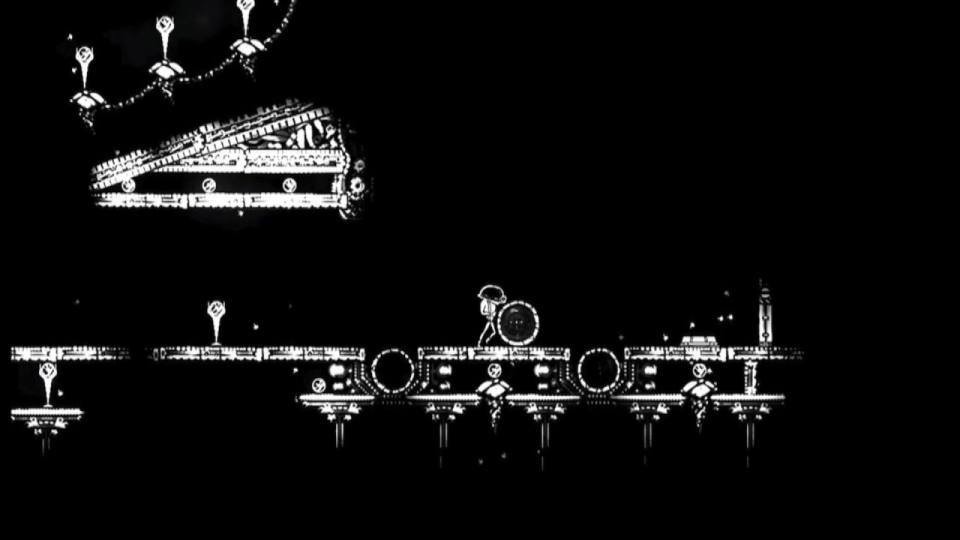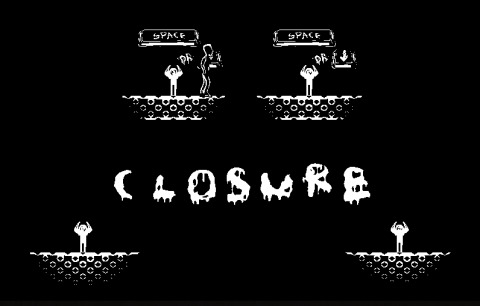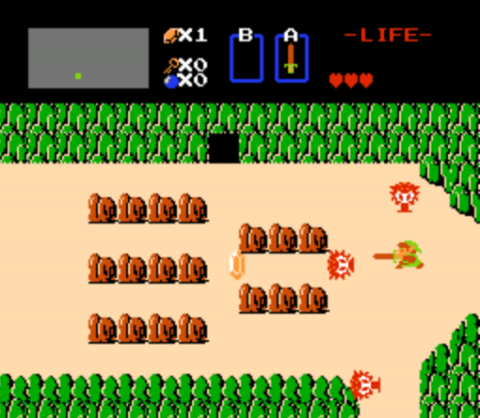
Super Metroid is mighty impressive in ways you may not notice, especially if you only played it as a teenager.
Before entering the room containing the destructive Plasma Beam, there’s a pile of goo requiring several shots. Samus--well, the player--enters the room, and finds the Plasma Beam waiting for them in the corner. Like almost everything in Super Metroid, once you’ve acquired the Plasma Beam, that’s it--triumphant music, and you’re back in the world. There’s no tutorial explaining why it’s useful, but the moment you leave the room, the pile of goo is back, but with a twist. The first shot from Plasma Beam freezes it, and the second one blows the whole thing up. Voila.
Today, that moment would have several minutes making totally sure players know what the Plasma Beam does.
"Lots of people applauding closure for not assuming the player is stupid,” wrote designer Tyler Glaiel on Twitter a few days after the launch of Closure, the game he’d been working on for the past three years.
The comment struck me, and I connected with him on Skype, and asked Glaiel to elaborate.
“That’s a comment that shouldn’t even need to be a comment,” he said. “It’s just sad that so many other games don’t do that, but it’s become a plus for games when it should just be expected out of them.”
Glaiel pointed to Super Metroid as an inspiration for Closure’s own design philosophy, a game that goes out of its way to avoid holding the player’s hand, while also ensuring they are completely informed.
Fez, possibly the most talked about game this year, arguably has a different game hidden inside, one that definitely doesn’t assume the player is stupid. Besides one or two pieces, the information required to put together the grand revelations within Fez are staring you in the face. You just need to piece it together. When you do, it’s gratifying.

Closure started as a Flash game, and you can still play it on Newgrounds. Glaiel and artist Jon Schubbe decided to expand on the concept, a development path very similar to Super Meat Boy. Glaiel and Schubbe didn’t work on Closure full-time for nearly a year a half, partially explaining why the game took so long, even after winning several Independent Games Festival awards in 2010.
I wondered whether this assertion the player deserves to be challenged was a conscious invoking of the more exploratory design of the earliest video games, but Glaiel didn’t really buy that argument. Some games, like Super Metroid, communicate instructions without being frustrating, but not all of them.
“Older games just didn’t explain anything, which ended up being a problem in some situations,” he said. “You end up with games like Zelda 1, which are really, really hard to understand, even though people like that game. I’m not a huge fan of it. Older games didn’t explain anything and newer ones [like Closure] are trying to explain everything that they can without using too much text or instructions. It’s slightly different.”
Interestingly, both games are from Nintendo.
There is no text in Closure, a decision that came about for two reasons. Most importantly, adding text would require localization, and the team didn’t have time or resources for it.
“It’s something that you should usually try to do with most games, even if you end up having to fall back on text, in the end,” he said. “If you can explain your game without text, it helps a lot.”
Closure never ended up having to add text, and avoiding localization logistics forced the team to construct creative solutions to obstacles encountered during playtesting. If players didn’t understand something the game was trying to tell them, the team tried to invent visual effects to aid with communication.
When players didn’t know when they could pick up orbs, a key component to solving puzzles, an outline was added to orbs when it was possible to grab them. Solved. When it was unclear pedestals moved back to their original position after removing an orb, a light source was added to then, visually informing players of movement. Solved.
Many of these solutions came from watching players work through the tutorial stages (which aren’t even labeled as tutorial stages, it’s just how the game opens), and making sure that was perfect.

But nothing can be perfect, and eventually puzzles have to leave the nest. Once the main stages in Closure are completed, a set of challenge rooms open up. Glaiel figured the rooms would be too tough for the quality assurance department, so he tasked his testers with capturing video footage to send over with the game.
Cue shock: the footage that came back showed players implementing solutions that weren't the ones Glaiel intended.
“I watched the video walkthrough that they did and they were solving puzzles the...wrong way,” he laughed. “Their solutions were ones that I didn’t even know were possible, but almost none of them were easy solutions--they were all more difficult than the actual solutions.”
There’s a reason those challenge rooms are so tough, too. They were designed as development wrapped, when Glaiel was simply tired. Three years in, he couldn't be sure what was interesting anymore. The mechanics had lost meaning, and he'd design half of a room, ones that shouldn’t have the tools to be solved. Then, he’d tried to make it work. If there was a way to crack the room, it went in the pile.
The real test came when it was released, and his dad played it. His father had seen the game but barely played it, and Glaiel said he didn’t play many games. His dad managed to make it through the entire game and all but the final, excruciating challenge room. But there was a good reason: a last-minute glitch made one jump absurdly hard.
“It’s the one that everybody gets stuck on,” he said. “It’s understandable, I’m surprised he got that far!”
163 Comments